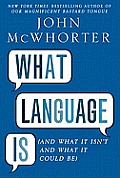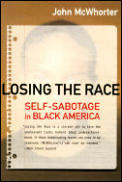
In honor of
Nelson Mandela's birthday yesterday, I want to share one of my favorite things about his native language, Xhosa.
The factoid we usually hear about Xhosa is that it has click sounds, and it does. In the '70s this, was best known through the singing of Miriam Makeba. These days people below a certain age are more likely to know about click languages through the film The Gods Must Be Crazy or the Marvin character in early episodes of South Park (although in reality click languages are not spoken in Marvin's native Ethiopia).
However, there's something else about Xhosa that I have always found just as interesting. It's the word ithi, and it seems innocent enough at first: It means "like this." So, if indoda enkulu means "old man" and "when he walks" is xa ihambayo, then this sentence:
 |
Indoda enkulu |
|
ithi |
|
ihambayo. |
 |
Old man |
|
like-this |
|
when he walks. |
...means "The old man is like this when he walks." Or, more idiomatically, "The old man walks like this."
Good? Okay, but now, here is another way you can use ithi. "Love thy neighbor" in Xhosa is Mthande ummelwane wakho. The word for Bible is iBhayibhile — look closely and you can see the word Bible in there; it's basically Bible enunciated the Xhosa way.
The fun thing is: here is how to say "The Bible says 'Love thy neighbor'" in Xhosa:
 |
Ithi |
|
iBhayibhile |
|
"Mthande ummelwane wakho." |
 |
Like-this |
|
Bible |
|
"Love thy neighbor." |
 Here's ithi ("like this") again. Languages differ in what order they put concepts in, and so English and Xhosa do not line up word for word. However, the way that sentence pans out is "Like this is the Bible: Love thy neighbor." That is, in Xhosa, a perfectly proper way to say "The Bible says 'Love thy neighbor'" is, of all things: "The Bible is like, 'Love thy neighbor'"!!
Here's ithi ("like this") again. Languages differ in what order they put concepts in, and so English and Xhosa do not line up word for word. However, the way that sentence pans out is "Like this is the Bible: Love thy neighbor." That is, in Xhosa, a perfectly proper way to say "The Bible says 'Love thy neighbor'" is, of all things: "The Bible is like, 'Love thy neighbor'"!!
What this shows is that our sense in English of what is "right" and what is "wrong" is not a mere matter of logic, but of the social valuations that different ways of saying things happen to carry, because of chance, social history, and other factors.
That kind of reasoning from linguists tends to sound like special pleading or politics, but it actually isn't. In English, the quotational usage of like, as in, "And he's like, 'Tell me more about it'," is associated with young people, with the informal, and with the new. It is indeed all of those things — like wasn't being used in that way in 1950, and those who use it will tend to be not old and not speaking in Sunday-best fashion — so, naturally, it is therefore thought of as sloppy, a detour from "real" English.
Be that as it may, the fact is that in one language (and others), the same quotational usage of like is an established part of ordinary language, not associated with the young or slang or television. People use it to discuss the Bible, and we can be sure that Nelson Mandela, of all people, has been using like in his native language like a teenager hanging out in Cleveland.
The language of Nelson Mandela, then, can tell us that what is new in a language is, as often as not, something that already happened eons ago in some other one, and will happen in other ones before long.